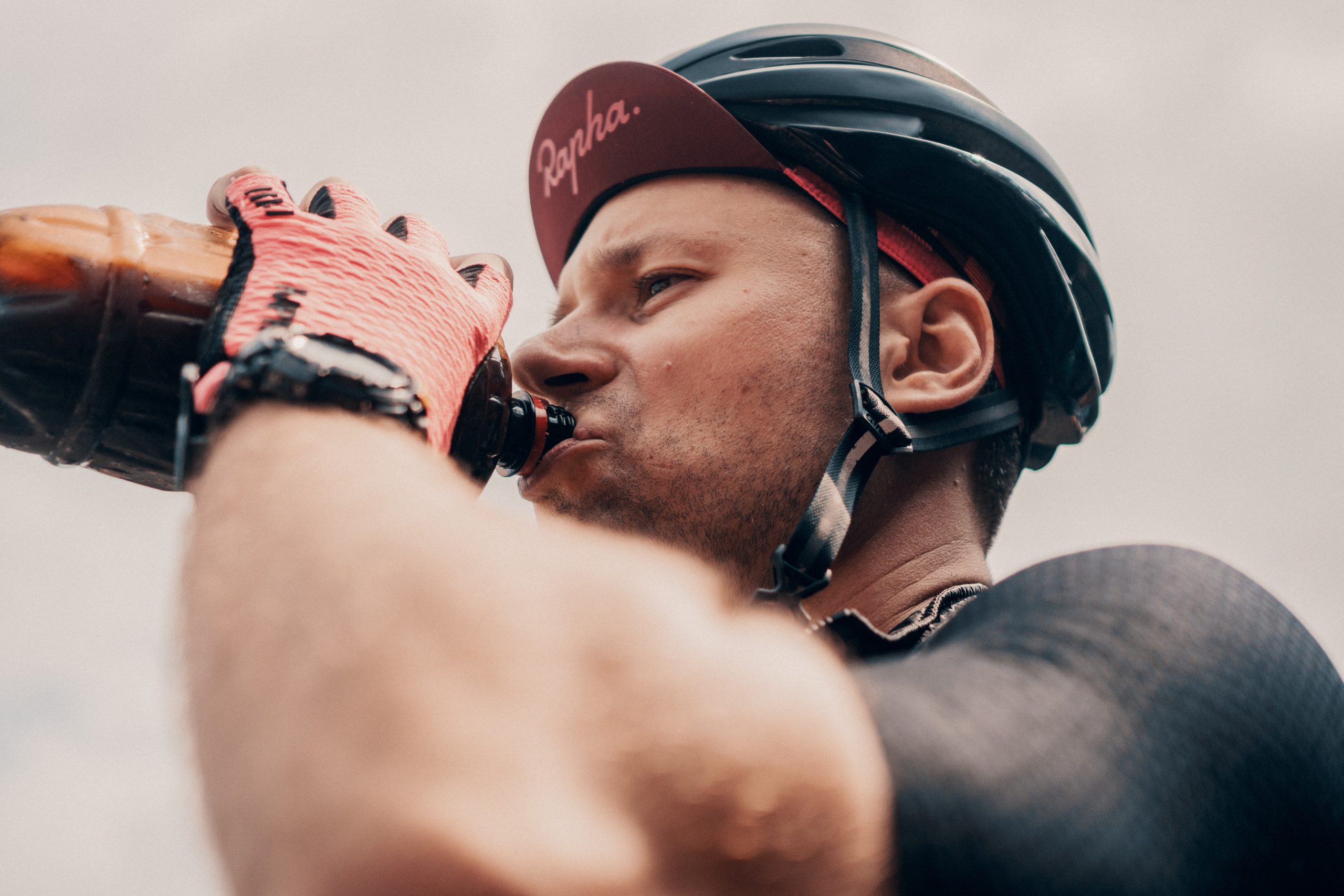The Endurance Athlete’s Taper Week Guide Part 1: Your Meal Plan
Registered Dietitian Alex Larson breaks down your full meal plan and nutrition guide for taper week leading up to your big race.

It’s here, you’re a week out from your race. You’ve put hours of sweat, energy, time and money into preparing for this. It’s no wonder that the weeks leading up to a key race can be some of the most stressful.
In a new three part series, our coaching experts will guide you through how to tackle this crucial time in Mind, Body and Nutrition, the three key elements to address during your final taper.
We’ll start with what we put in our bodies first, Nutrition. When it comes to taper week nutrition, don’t screw it up by eating poorly the week of the race, and this is the guide to help set you up for success.
Race week can be stressful with packing, traveling, final workouts and preparations. Do your homework and prepare for those race week meals and you’ll have one less thing to worry about in those final days leading up to the race.
Don’t Eat Healthy, Eat Right
Nutrition during the week of your race is not about eating healthy, it’s about eating right. These days are all about fueling your body properly, and snacking on carrots, hummus and a handful of almonds isn’t gonna cut it.
In the two to three days prior to the race, cut down on the fresh vegetables and high-fiber foods. Fiber can create bulk in stools and keep your gut moving along, something you’ll want to reduce prior to race.
When it comes to food choices, keep it safe. Don’t go buying gas station sushi and ordering undercooked meats. And skip the buffets as you never know how long food has been sitting out. The last thing you want going into your race is food poisoning.

Load on the Carbs
When you’re four to six (or more) days out from the race you can focus on your normal eating pattern, but take the time to do some grocery shopping to prepare for carb-loading.
The two to three days leading up to the race is prime carb-loading time. The goal of carb-loading is to boost your glycogen stores. Our body stores glycogen in our muscles to use as energy for the race. Fully-loaded glycogen stores will offer 90-120 minutes of exercise before feeling fatigue.
- For sprint races (<90 minutes or less) – eat a carb-rich meal the evening before the race and the morning of the race.
- For Olympic-distance races – carb load for one to two days prior to race
- For 70.3 and beyond – carb loading two to three days prior to race
When carb loading, you will need about 10-12 grams of carb/kg/day (4.5-5.5 g/lb/day). Did you do the math? It’s a lot of carbs, and in order to avoid eating way too many calories you’ll want to keep your fat and protein low. Ideally, you’ll have 70-80 percent of your calories coming from carbs.
Examples of carb content:
- Bagel = 60 grams
- Slice of bread = 15 grams
- 1 cup rice = 45 grams
- 1 cup pasta = 40 grams
- 1 english muffin = 30 grams
- ½ cup cooked oats = 15 grams
- 1 waffle (4-inch square) = 15 grams
- 1 pancake (8-inch across) = 30 grams
- ½ cup granola = 30 grams
- 1 large banana = 30 grams
Choose lower-fiber foods. Skip the veggies, the salads and the whole grains. Fiber keeps your digestive tract moving along and increases the bulk of your stools. Things we want to avoid on race day.
Don’t weigh yourself when carb loading. It’s normal and expected to see the scale go up a few pounds because the body will be storing more water. Focus on preparing for the race instead of your weight.
Pro tip: Practice your carb-loading for a day before a long training workout so you can get an idea of what it takes to hit your carb-loading goal. It’s a lot harder to hit those carb numbers than you’d think.

Hydration and Electrolytes
Getting to the starting line properly hydrated doesn’t mean drinking every water bottle in sight. Athletes can easily get too zealous with water consumption in their last minute preparation. It can lead to issues such as hyponatremia, a low blood sodium level due to an over consumption of plain water.
“Preloading” your hydration, especially if the race forecast is hot, is a great tactic. It involves consuming a strong dose of electrolytes the evening before and the morning of the race. This technique will increase blood plasma volume and give your body a head start in handling prolonged exercise in the heat.
You’ll want to tailor the amount of sodium and electrolytes you consume based on your needs. For those that tend to sweat higher levels of salt, you’re looking at preloading with 800-1,000+ mg. For those that have lower salt losses, 400-600 mg per dose is a good starting point.
Pro tip: It’s common for athletes to under hydrate during training and then over hydrate pre-race. Make sure that you’re properly hydrated throughout your training so that you’re well prepared for race week.
Disclaimer: If you have a history of high blood pressure, please consult with your primary care provider about sodium consumption recommendations.

T-24 Hours to Race Start
Depending on the race, the day prior can be busy with packet pickup, equipment and support bag drop off. You’ll want to plan accordingly and eat and take in fluids frequently throughout the day. Stick to foods that you’re familiar with. Avoid spicy, greasy and fatty meals as that could be a recipe for gut issues during the race.
Get a jump start on carb loading by making breakfast and lunch your largest meals of the day to provide more time for digestion. Dinner should be a normal portion size of mostly carbohydrates so that you don’t go to bed with an overly-full and uncomfortable stomach.
Get to bed early as you’ll want to be up a few hours before the gun goes off to eat breakfast. Carbs are king when it comes to race-day breakfast. Keep it low fat, and hydrate with added electrolytes.
Full Taper Week Meal Plan
Sign up below to receive our Free Meal Plan
. . .
Alex Larson, MS, RDN, LD is a registered dietitian and age-group triathlete and runner. She works virtually with endurance athletes to improve performance and body composition through a flexible eating style. Alex lives near Duluth, Minnesota with her husband, two young boys and golden retrievers. You can find Alex at alexlarsonnutrition.com and on social channels @alexlarsonnutrition.

